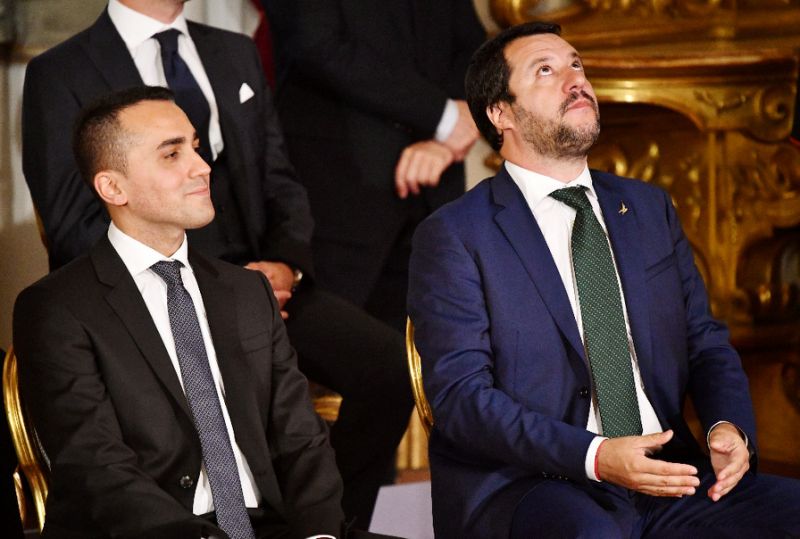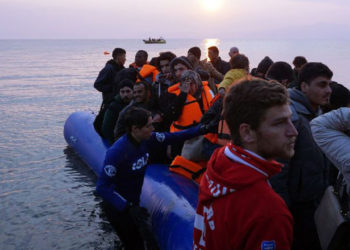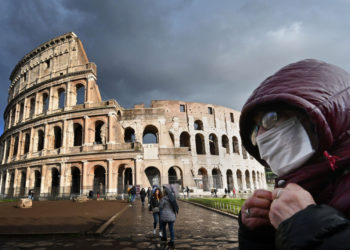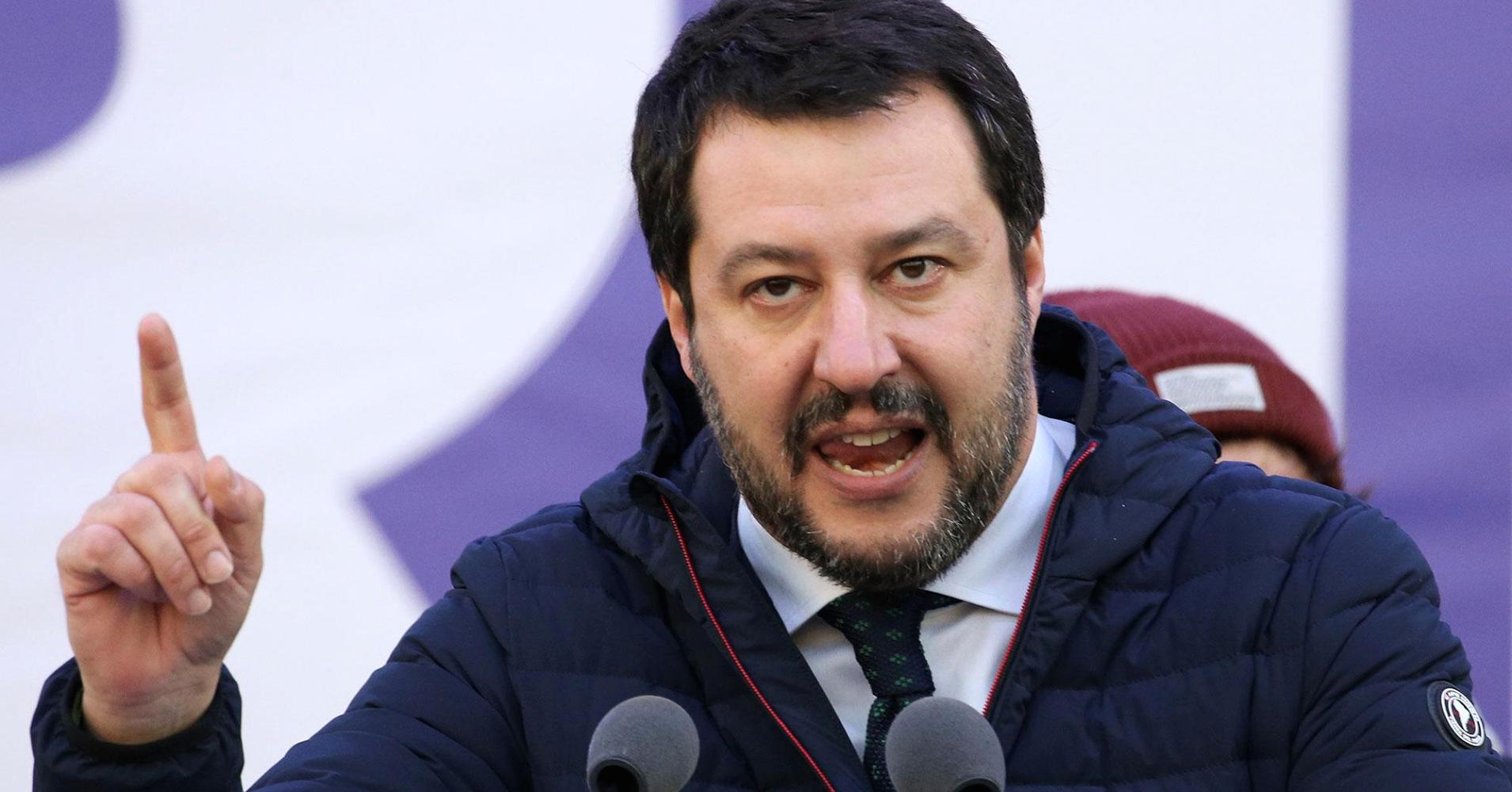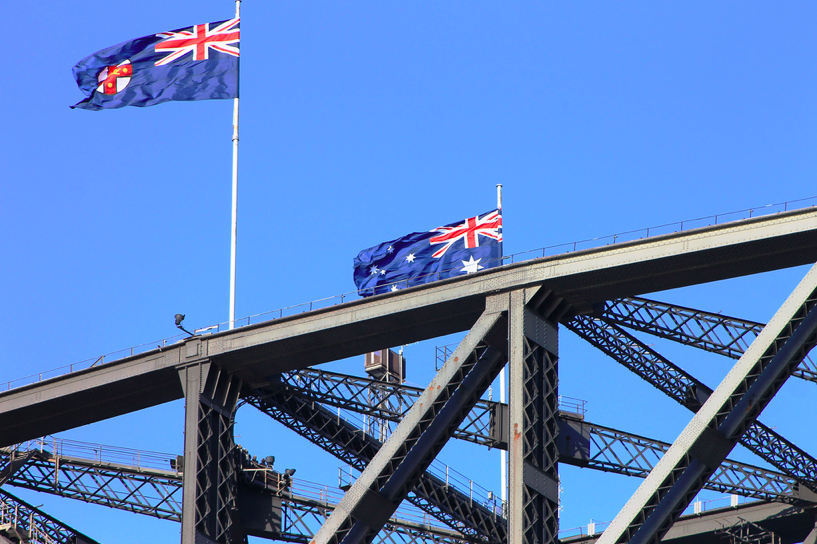Italy’s political crisis edged forward on Monday after party leaders decided to recall the Senate to vote on a timetable that could include a no-confidence vote and spell the end of the populist coalition.
Far-right Interior Minister Matteo Salvini called last week for swift elections after withdrawing the support of his anti-immigration League party from an increasingly acrimonious alliance with the anti-establishment Five Star Movement (M5S).
While the government is still in place, the Senate must decide whether to initiate a no-confidence vote in Prime Minister Giuseppe Conte’s 14-month-old administration.
Talks among the heads of political groupings in the upper house on Monday afternoon failed to reach unanimous agreement, recalling senators from their holidays to debate a calendar for the complex constitutional process of a no-confidence vote.
Senators, who are to meet from 1600 GMT on Tuesday, are also expected to vote on whether Conte should address the Senate on the crisis on August 20.
Together the M5S and the opposition Democratic Party (PD) would have enough votes to approve that motion, potentially thwarting Salvini’s bid to bring down the government.
Salvini wants elections to be held quickly, possibly in October, to capitalize on opinion polls suggesting the League might garner 36-38 percent of votes.
Populist leader Salvini effectively ended the ruling alliance on Thursday, saying afterward he had had enough of working with the M5S and what he said was its refusal to collaborate on key issues.
Timeline comparing the political fortunes of Matteo Salvini and Luigi Di Maio after Salvini plunged the country into turmoil by pulling out of a teetering coalition governmenthttps://t.co/T5LLAiY4gc pic.twitter.com/e4VPRFbU06
— AFP News Agency (@AFP) August 12, 2019
The two parties have seen a stunning reversal of fortunes since forming a government after the M5S won 32 percent of votes and the League 18 percent in 2018.
Salvini has been taking his message to the beaches at the height of the summer holiday season, seeking to build on the League’s strong showing in May’s European Parliament elections when it won 34 percent of the vote, twice that of the M5S.
Electoral Pact
But Salvini would still need parliamentary allies to form a government, saying on Monday that he would “in the coming hours” meet former premier Silvio Berlusconi and the head of the extreme-right Brothers of Italy, Giorgia Meloni, to “propose an electoral pact.”
Tycoon Berlusconi’s Forza Italia party and Brothers of Italy could each win 6 to 8 percent of votes in an election, according to opinion polls.
Salvini has been relentlessly campaigning in southern Italy, the M5S’s traditional heartland and far from the League’s historical political base in the north.
The social media-loving Salvini, who is also deputy prime minister, has been burnishing his “man of the people” image through a series of beach selfies in swimming trunks in recent days.
Salvini says he wants an election in order to form a stable, five-year government without the constant bickering with M5S, which is politically distant from the League’s hardline anti-immigration stance.
He says he wants to implement radical tax cuts and initiate public works projects to kickstart the Italian economy.
‘Stop the Barbarians’
But the M5S is among those opposed to swift elections, with Di Maio calling for parliament first to implement a planned parliamentary reform which would slash the number of lawmakers from 950 to 605, potentially diluting the League’s power.
The M5S’s founder, comedian Beppe Grillo, called for a “republican front” to prevent “the barbarians” forming a government.
Matteo Renzi, who governed for PD from 2014-16, called for the formation of a technocrat government to avoid “giving the extreme right our children’s future.”
The M5S, PD and other parties should support an “institutional government” to pass the parliamentary reform and next year’s budget to avoid an automatic rise in VAT which would hit the least well-off the hardest, Renzi said.
However, the PD is also riven with divisions between those loyal to Renzi and supporters of current party leader Nicola Zingaretti.
The party is also divided over whether to try to form a coalition with M5S, something they refused to do after last May’s elections, prompting the unwieldy M5S-League alliance.


